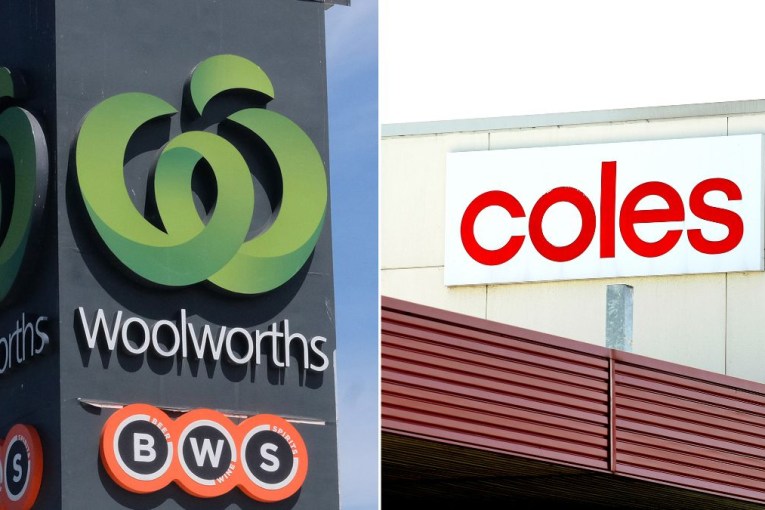Why investors are rushing back into the markets despite the coronavirus crisis


Mum and dad investors are defying expectations and using recent market falls as savvy investment opportunities. Photo: Getty
Ordinary Australians have turned the coronavirus crisis into a savvy investing opportunity, displaying impressive insight by jumping into sharemarkets and snapping up bargains.
Retail investors – everyday Australians with some money in the sharemarket – have taken full advantage of the ASX’s recent losses.
For many, the allure of the market’s more recent gains are enough to offset the inherent risks attached to sharemarket investing.
Gemma Dale, director of SMSFs and investor behaviour at nabtrade (the stockbroking arm of NAB), said existing investor trade volumes have doubled in the past four to eight weeks.
And there’s no shortage of new money.
Ms Dale told The New Daily applications for trading accounts have increased five times since the virus sent markets into a tailspin.
“We’re not seeing the kind of panic selling that people tell you is going to occur – we’ve actually seen the exact opposite,” she said.
More promisingly, that sudden influx of money has been very targeted, with retail investors focusing on big-name businesses that normally trade for much higher prices.
“There’s been a real swing to quality; we’re not seeing speculative small-cap buying.”
What are retail investors buying?
Rather than taking a punt on small caps [lesser-known, low-value businesses], retail investors have turned their attention towards well-known businesses that took a hit when markets started selling off earlier in the year.
A surprising pick proving that point is Qantas, which Ms Dale said has seen a lot of interest from investors despite suffering big losses due to the government’s travel bans.

Qantas is popular with investors despite the travel bans. Photo: AAP
Investors believe the national carrier is too big and important for the government to let it collapse, Ms Dale said.
And with oil prices falling to 18-year lows, airlines are theoretically able to lock in lower fuel costs – their second-largest expense after staffing – to improve profit margins for the next two years.
All of that is speculation however, and Qantas investors may yet face further pain.
Meanwhile, CMC Markets head of trading sales for Asia-Pacific Ash Glove said Australia’s big four banks have also been major beneficiaries of the swing to quality.
A mere ten years on from the Global Financial Crisis (GFC), that kind of behaviour makes sense, Mr Glover said.
“Investors have seen this before – the GFC is still fresh in everyone’s minds,” he said.
“I think they’ve seen that the whole ‘buy-the-dip’ mentality has played out very well for longer-term investors.”
‘Buying the dip’ refers to purchasing shares after their price has fallen, on the assumption their value will recover and increase over time.
Funds also proving popular
Big-name ‘blue-chip’ stocks aren’t the only opportunities to capture investors’ imaginations, though.
Exchange-traded funds (ETFs) are also enjoying a moment in the sun – with nabtrade’s Ms Dale noting that one Australian ETF had seen sales volumes increase 20 times over in the past month or so.
These products work like normal investment funds, but the units held by individual investors can be bought and sold on stock exchanges.
Aleks Vynokur, chief executive of ETF manufacturer BetaShares, told The New Daily the sector has seen a sizeable increase in interest from mum and dad investors.

ETFs have become hot property as retail investors look to ‘buy the dip’. Photo: AAP
Funds focused on big-name companies and financial institutions have naturally been the target of much of that, but Australian technology businesses have also proven popular.
“Technology got sold off alongside some of the other industries that got sold off for good reason – for example travel and real estate,” he said.
No one is travelling so airlines got sold off, there was a reason for that, but technology companies took the brunt of the sell-off too even though people are probably using technology more than ever before.”
Now, some investors suspect the baby was thrown out with the bathwater and have since jumped at what they see as an opportunity to buy strong stocks at heavily discounted prices.
Should I buy stocks, too?
The million-dollar question for other retail investors is whether to join in and snap up bargains.
Unfortunately, the answer to that question is complicated and based on personal circumstances.
Investing always comes with risk, and not every business that looks like a bargain will turn out that way.
Would-be investors need to work out how much money they can afford to lose, understand why they want to invest, and create a plan and a portfolio catered to their own needs.
And anyone who chooses to invest now should be prepared for further losses in the months ahead.
AMP Capital chief economist Shane Oliver said it’s still too early to know whether or not sharemarkets have hit the bottom of this crisis yet.
“There is still a lot of bad news to come,” he warned.
“But increasing policy support against the backdrop of increasingly positive signs that suppression is working and it may be possible to relax lockdowns in the next month or so are positive signs that we have seen the low or have come close to the low.”
Tweet from @CommSec








